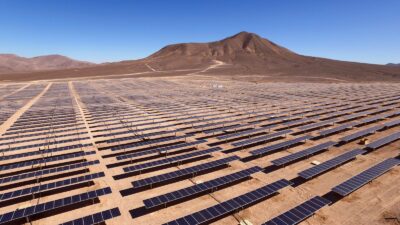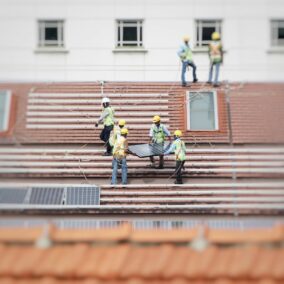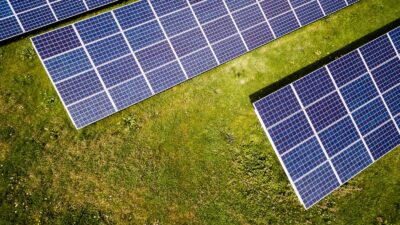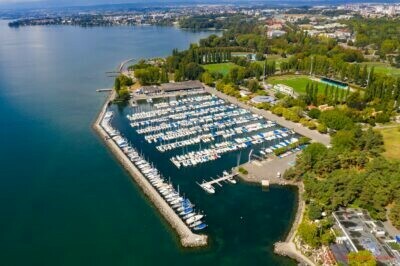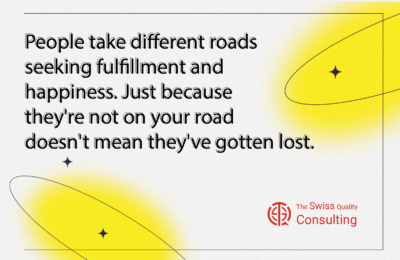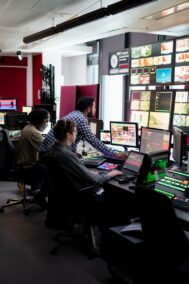The Potential of Solar Roads and Sidewalks in Modern Infrastructure
The Rise of Solar Roads in Sustainable Infrastructure
Sustainable infrastructure solutions are becoming increasingly vital in the modern world, particularly in rapidly developing regions such as Saudi Arabia and the UAE. As urban areas grow and environmental concerns mount, the integration of solar roads presents an innovative method to address both transportation and energy needs. Solar roads, composed of durable photovoltaic panels, can convert sunlight into electricity, offering a renewable energy source directly embedded within transportation networks. In Riyadh, where the push for sustainable urban planning is strong, implementing solar roads could significantly reduce reliance on non-renewable energy sources while providing a steady supply of electricity for the city.
The concept of solar roads aligns well with the visionary projects of Dubai, a city known for its forward-thinking approach to infrastructure and technology. By integrating solar panels into roads, Dubai could enhance its reputation as a leader in sustainable urban development. These solar roads could power streetlights, traffic signals, and even nearby buildings, creating a more resilient and self-sufficient urban environment. The potential to incorporate smart technologies, such as IoT devices and sensors, into these solar road systems can further optimize traffic management and enhance safety.
For business executives and mid-level managers, the adoption of solar roads represents a strategic investment in the future. Not only do these solutions offer long-term cost savings through reduced energy expenses, but they also align with corporate social responsibility goals. Companies operating in regions like Saudi Arabia and the UAE can leverage solar roads to showcase their commitment to sustainability, attracting environmentally conscious investors and customers. Moreover, the integration of such technologies can improve operational efficiency and contribute to a greener, more sustainable business landscape.
The Impact of Solar Sidewalks on Urban Development
Just as solar roads are revolutionizing transportation, solar sidewalks are transforming pedestrian infrastructure. Solar sidewalks, equipped with photovoltaic panels, provide an eco-friendly solution for urban areas looking to harness renewable energy. In bustling cities like Riyadh and Dubai, where pedestrian traffic is high, solar sidewalks can generate substantial amounts of electricity, contributing to the cities’ overall energy grid. This innovative approach not only enhances the aesthetics of urban environments but also promotes sustainable living.
In addition to energy generation, solar sidewalks can be integrated with smart technologies to improve urban planning and management. For instance, sensors embedded in these sidewalks can monitor foot traffic, providing valuable data for city planners to optimize pedestrian flow and safety. This data-driven approach can help reduce congestion, improve public safety, and enhance the overall urban experience. In Dubai, a city known for its smart city initiatives, the deployment of solar sidewalks could further solidify its position as a global leader in sustainable and intelligent urban development.
From a business perspective, the installation of solar sidewalks offers numerous benefits. Companies involved in construction, technology, and renewable energy sectors can find lucrative opportunities in this emerging market. Moreover, businesses that adopt solar sidewalk projects can benefit from enhanced brand image and public recognition. By investing in green infrastructure, companies demonstrate their commitment to innovation and environmental stewardship, which can be a significant competitive advantage in today’s market. For entrepreneurs and business leaders, exploring partnerships and collaborations in this field can open new avenues for growth and sustainability.
Executive Coaching and Change Management for Sustainable Infrastructure
The successful implementation of sustainable infrastructure solutions, such as solar roads and sidewalks, requires effective change management and executive coaching services. Business executives and mid-level managers need to navigate the complexities of adopting new technologies and integrating them into existing systems. Executive coaching can provide the necessary guidance and support to lead these transformative projects. By focusing on leadership and management skills, coaching services can help executives drive sustainable initiatives and achieve business success.
Change management plays a critical role in the transition towards sustainable infrastructure. It involves preparing and supporting individuals, teams, and organizations in making organizational changes. In regions like Saudi Arabia and the UAE, where ambitious infrastructure projects are underway, effective change management ensures that these initiatives are smoothly executed. By fostering a culture of innovation and adaptability, companies can better embrace new technologies such as solar roads and sidewalks, leading to more efficient and sustainable outcomes.
Effective communication is another essential component of change management. Business leaders must clearly articulate the benefits and importance of sustainable infrastructure solutions to stakeholders, employees, and the public. Transparent communication helps build trust and buy-in, which are crucial for the success of any change initiative. By leveraging executive coaching and effective communication strategies, business leaders can champion sustainable infrastructure projects and drive positive change within their organizations and communities.
Leveraging Artificial Intelligence and Blockchain for Infrastructure Innovation
Artificial Intelligence (AI) and blockchain technologies offer immense potential for enhancing sustainable infrastructure solutions. AI can optimize the performance and maintenance of solar roads and sidewalks by predicting energy production, detecting faults, and managing energy distribution. In cities like Riyadh and Dubai, AI-driven analytics can improve the efficiency and reliability of these systems, contributing to more sustainable urban environments. Additionally, AI can enhance traffic management, reduce congestion, and improve road safety, making cities smarter and more resilient.
Blockchain technology can provide a secure and transparent platform for managing the data generated by solar roads and sidewalks. By recording and verifying transactions, blockchain ensures the integrity of data related to energy production, consumption, and distribution. This transparency can enhance trust among stakeholders and facilitate the seamless integration of renewable energy sources into existing grids. In the UAE, where blockchain initiatives are already being explored, the application of this technology to sustainable infrastructure can further advance the country’s digital transformation and sustainability goals.
For business leaders, the integration of AI and blockchain into sustainable infrastructure projects presents a unique opportunity to drive innovation and efficiency. By staying ahead of technological trends and investing in these cutting-edge solutions, companies can enhance their competitive edge and contribute to the development of smarter, greener cities. Embracing these technologies also aligns with global sustainability goals, positioning businesses as leaders in environmental stewardship and corporate responsibility.
Conclusion: The Future of Sustainable Infrastructure
The adoption of solar roads and sidewalks represents a significant step towards sustainable infrastructure solutions in Saudi Arabia and the UAE. These innovative technologies offer numerous benefits, including renewable energy generation, enhanced urban planning, and improved public safety. For business executives, mid-level managers, and entrepreneurs, investing in sustainable infrastructure is not only a strategic move but also a commitment to environmental stewardship and corporate responsibility.
As the world moves towards more sustainable and intelligent urban environments, the role of executive coaching and change management becomes increasingly important. Business leaders must navigate the complexities of adopting new technologies and driving transformative projects. By leveraging effective communication strategies and embracing AI and blockchain technologies, companies can lead the way in sustainable infrastructure innovation and achieve long-term business success.
#sustainableinfrastructure, #solarroads, #solarsidewalks, #greeninnovation, #smartcities, #executivecoaching, #changemanagement, #renewableenergy, #AI, #blockchain, #businesssuccess, #leadershipskills, #projectmanagement



